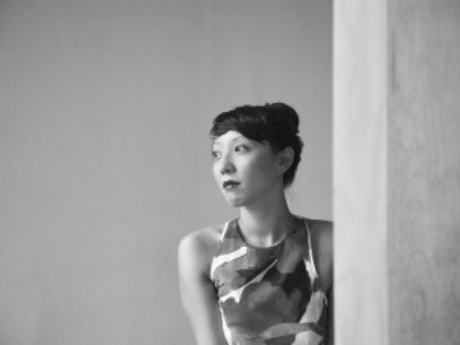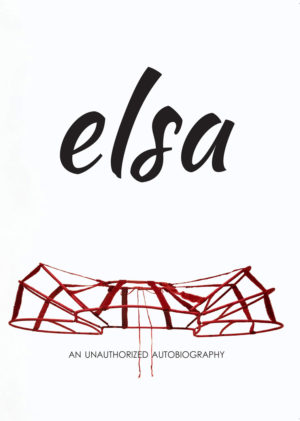In Their Own Words
Angela Veronica Wong on “Elsa, Stick Your Finger In The Pie”

Elsa, Stick Your Finger In The Pie
Elsa, the court is plagued by etiquette.
Class mobility takes root. The Orient
edges in through seams and fabrics,
dress lines and dress coats. Chinoiserie
decorated walls and furniture, the
true gentleman and individual
responsibilities. Heat foments and
scumbles continents. Weather turns seeds
and pink patterns, brings hints of Mississippi
gold and quite real colonial produce. The
company of the Indies requires
almost unlimited capital.
Elsa, stick your finger in the pie.
Trade and speculation on overdrive.
From elsa: an unauthorized autobiography (Black Radish Books, 2017). All rights reserved. Reprinted with the permission of the author.
On "Elsa, Stick Your Finger In The Pie"
Most immediately, elsa is about a fictional 18th-century courtesan within Louis XV's court navigating domestic and international politics, which is never too far removed from personal ambition. Set on the cusp of the French Revolution, elsa also lives within the paradoxes of liberalism: a revolt against aristocracy and hierarchy in the name of freedom and democracy while subjugating bodies and stripping resources from "far-flung" colonies.
As seen in "Elsa, Stick Your Finger In The Pie," elsa embodies these persistent paradoxes. More specifically, the poem responds to how we often think about the French Revolution and the Enlightenment as exciting moments where Western intellectual thought brought us democratic ideas that triumphed over oppression. But the foundational texts of liberalism often tracked in racialized justifications, including Orientalist discourse, that continue today. And despite calls for universal emancipation, women were barred from political representation and much of their labor not registered as productive work. The interplay and contradictions between liberalism's ideologies is of particular interest in this poem and the whole book—as is thinking about the knowledges produced and assumptions perpetuated.



